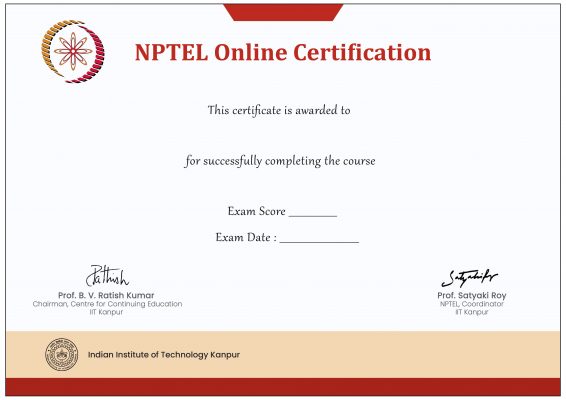Description
With the concept of managing Big Projects under costs and time constraints, it is imperative, that people working in manufacturing/process/service industry have a very good understanding of the general and advanced concepts of Project Management. It is with this motivation that this course is designed, to meet the demand in the market from, UG to PG students coming from a variety of fields, be it Engineering or Management.
INTENDED AUDIENCE
Bachelors in Engineering, Masters in Business Administration, Masters in Economics, Masters in Industrial Engineering, Masters in Operations Research/Operations Management, PhD in related fields
PREREQUISITE
Basic Probability & Statistics, Basic Operations Research
INDUSTRY SUPPORT
Manufacturing Industry, Chemical Industry, Steel Industry, Cement Industry, Service Industry, Industry with well developed SCM, etc.
ABOUT THE INSTRUCTOR

Prof. Raghu Nandan Sengupta completed his bachelors in engineering in Mechanical Engineering from Birla Institute of Technology Mesra, Ranchi INDIA and his FPM (PhD) from Indian Institute of Management Calcutta, INDIA with specialization in Operations Management. His research interests are in Sequential Analysis, Statistical & Mathematical Reliability, Optimization and its use in Financial Optimization. His research work has been published in journals like Metrika, European Journal of Operational Research, Sequential Analysis, Computational Statistics & Data Analysis, Communications in Statistics: Simulation & Computation, Quantitative Finance, etc. At Indian Institute of Technology Kanpur, INDIA he is a Professor in the Industrial & Management Engineering department and teaches courses like Probability & Statistics, Stochastic Processes & their Applications, Management Decision Analysis, Financial Risk Management, etc. He is also the recipient of IUSSTF Fellowship 2008 and visited Operations Research & Financial Engineering department at Princeton University, USA, ERASMUS MUNDUS Fellowship 2011 to Warsaw University, POLAND, EU-NAMASTE Fellowship 2015 to IST, University of Lisboa, PORTUGAL, DAAD Fellowship 2015 to TU Dresden, GERMANY.



Reviews
There are no reviews yet.